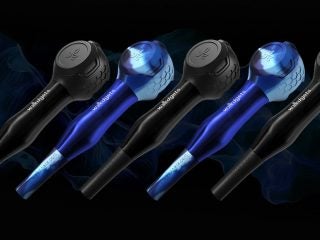The Four Seasons Hotel began in 1960 with a small, single hotel in Toronto.

Isadore Sharp – the founder of the now-famous hotel chain – recalled that the first establishment was in an otherwise down-market area: “the only part of town where I could buy a lot of land that was quite cheap.”
One couldn’t imagine a more stark difference from the brand that today, has become synonymous with pure luxury.
At that time, Sharp was armed with a degree in architecture, and had begun working in his father’s construction business. After building a hotel for a client, and noting its success, Sharp decided to construct his own. But with no experience in the hotel industry, he couldn’t find anyone to lend him the money he needed.
He recalled: “I just couldn’t understand why people didn’t see it as a good idea.” It took five years of lobbying investors, raising funds, and holding true to his vision. “When you have a passion, a belief about something, it allows you to persevere,” he says.
Luxury Paradigm
Currently, the company he grew runs a 119 hotels and resorts, 44 residential properties, 47 countries and 50 projects in various stages of development.
In establishing a global network of hotels that have become a household name, Sharp says the formula boils down to offering the best possible service – what he calls “our competitive advantage” – and staff abiding by the Golden Rule.
“The sincerity of giving customers what they want only comes from the people on line – the doormen, front desk, housekeeper, engineers,” says the 89-year-old Torontonian.
“The one thing competitors cannot copy is the culture of a company, that develops over many years through the actions of its people.”
Fortune magazine has named Four Seasons as one of the 100 Best Companies to Work For every year since its list began in 1998. Four Seasons is also well known for having one of the lowest staff turnover rates in the hotel industry.
Sharp realized that sometimes it’s the small, thoughtful gestures, that put a company over the top.
He stayed ahead of the curve, by offering a slew of amenities at the customers’ fingertips. Four Seasons was the first to introduce complimentary shampoo, 24-hour room service, a bathrobe, and same-day clothes cleaning and pressing.
“From day one until today, it was about being innovative,” says Sharp, adding that most of those much-copied perks are today found in even low-budget hotels.
“So my approach towards how we should build, and operate, was to look at it from a customer’s perspective. What would a customer consider to be important, and of value to them, when away from the office or at home? So, all the ideas that we innovated were based upon the simple premise.”
Fulfilling customer needs, down to the premium mattress, evolved during the building of the London hotel, in 1970.
“I knew people would be normally traveling overnight from the US to Europe. What would be important is that because your body clock is out of sorts, you would need the most comfortable mattress. You’d be able to sleep, even though it would be at odd hours,” he recalls. After a fair bit of research, and personal testing, he chose a make and model from Germany that he believed was the best of the best.
Though he says the concept wasn’t marketed, the hotels started selling those mattresses to customers asking for them.
Nevertheless, it wasn’t all a smooth course. The company found itself facing financial hurdles during the mid-1970s recession. The resulting high inflation meant that Four Seasons couldn’t afford to pay back the money it had borrowed to build a hotel in Vancouver.
Sharp was ultimately able to renegotiate the deal, but the scare meant that he changed the company’s financial model.
Previously it paid for and built its own hotels, but switched to operating hotels that had been funded and constructed by real estate owners and developers. Under the agreements, Four Seasons leads the design of the new property.
“That change of the business model has got us through every financial crisis we’ve had,” he says. “Those are the kinds of experiences that you encounter, and out of those experiences an opportunity sometimes breaks open an idea for you.”
The next big change came in 1986, when the company was publicly traded on the stock market, until in 2007, when it was bought by Microsoft founder Bill Gates and Prince Al-Waleed bin Talal of Saudi Arabia. They paid $3.8B for 95% of the company, split equally, while Sharp maintained a 5% stake.
Sharp stayed on as chief executive until 2010, when he switched to the role of chairman.
“I continue to have good relations with all our partners. I continue to visit hotels to make sure we preserve what the culture stands for,”
he says. “We’ve always had an open mind to the customer’s needs.”
In these COVID-19 days, that meant consulting with experts at John Hopkins Hospital, in Baltimore, to determine best methods and procedures to assure customer and employee safety. It helped to inform the “Lead with Care” program.
“It’s a never-ending process to appeal to, and satisfy customers,” says Sharp. “It’s how we started, and how we will continue.”


















